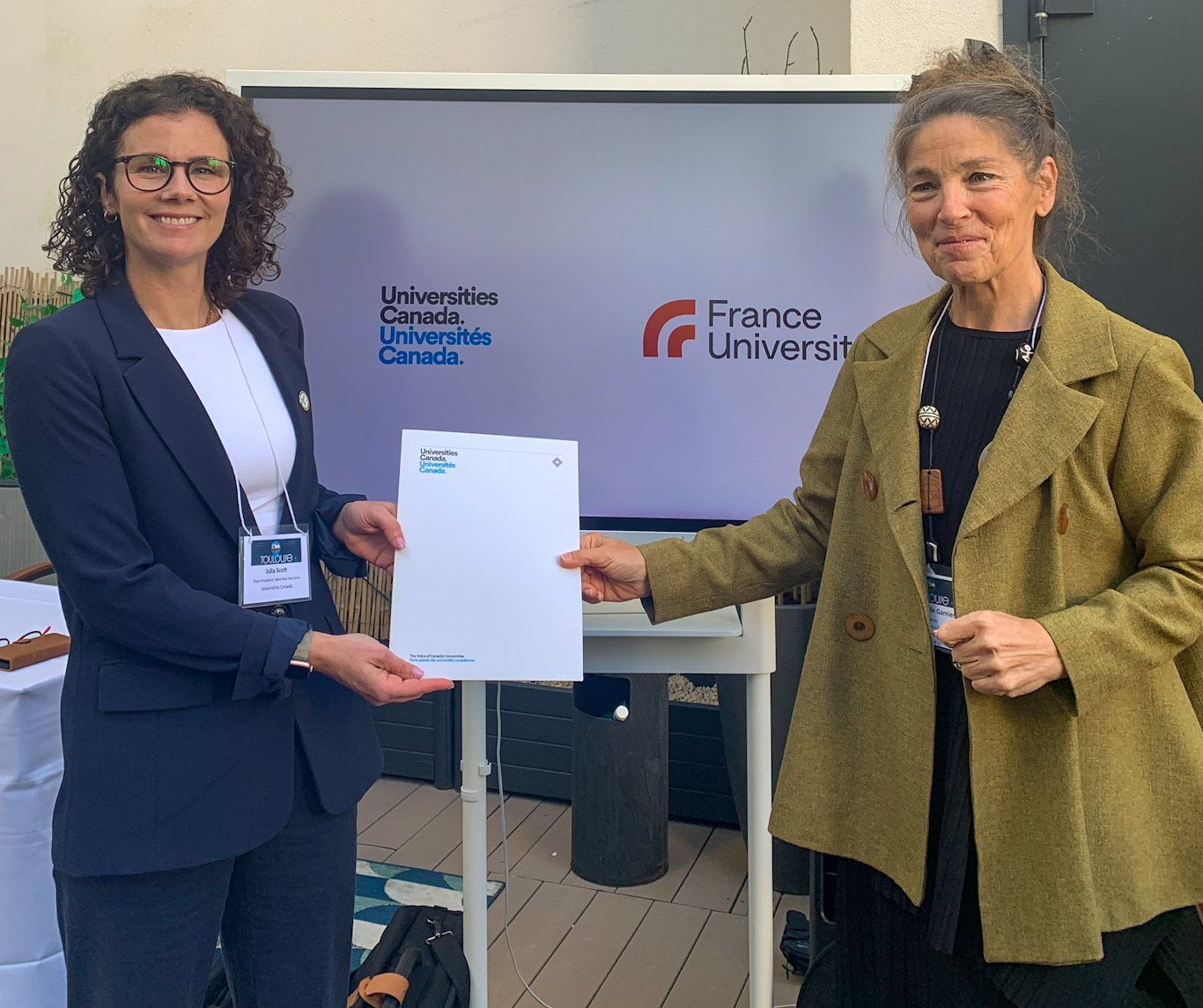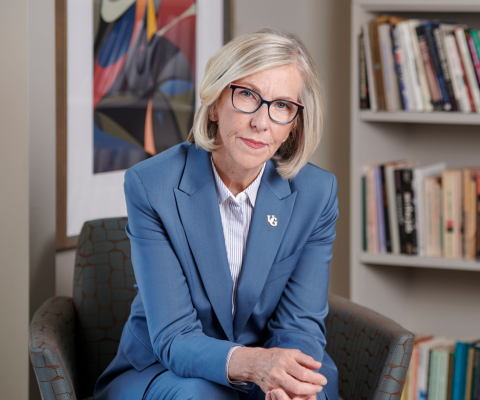Canada can’t afford to lose a generation of top research talent

This op-ed was published in the Globe and Mail on April 28, 2017
By Elizabeth Cannon, chair, Universities Canada and president, University of Calgary
Prove it.
It’s a schoolyard taunt that can shut down a lot of arguments. But for the scientifically minded, it’s an open challenge.
The Advisory Panel on Federal Support for Fundamental Science has proposed an agenda for Canada that will take the young and curious-minded who are ready to prove it and support them to become the next generation of Canada’s research leaders.
The panel, led by Dr. David Naylor, gives us a road map to hold our place and chart a path forward in the world of scientific research. It offers a blueprint for sustained excellence in investigator-led research across disciplines.
We need to act on the report now. We need the best minds on our biggest problems. We need to be competitive in attracting and growing talent. There is too much at stake if we don’t get it right.
Among the Naylor report’s key recommendations is a call for enhanced support for early career researchers. This is a very important call to action. Canada cannot afford to lose a generation of top researchers because we don’t properly support them. It’s not enough to say, as Canadians, we believe in science; we have to provide the infrastructure, tools, time, space and room on the agenda to explore the challenges facing Canada and the world. Fundamental science, the curiosity-based research that asks “what if?” and looks so far down the road that its applications go beyond imagination, is the stuff that builds futures, that puts us ahead internationally. It’s the research that nurtures the Arthur McDonalds, the John Polanyis and the Frederick Bantings of the world.
None of those Canadian Nobel laureates started at the top. They had the support of mentors and top-level researchers who inspired and trained them. Today’s students need the same. Supporting top talent provides exceptional learning opportunities for future researchers.
With sustained research funding, and top-tier talent choosing Canada as a place for discovery, they’ll have those opportunities. Investments in research help train students, both graduate and undergraduate, to become not just academics but also the next drivers of industry, and leaders in government and entrepreneurship.
At the University of Calgary’s Cumming School of Medicine, for example, Dr. Samuel Weiss, a world-leading scholar in neurobiology and Gairdner Award-winner, leads the Brain and Mental Health research strategy. The strategy brings together more than 330 researchers, from across nine faculties. And more than 400 undergraduate students, graduate students and postdoctoral scholars contribute to brain and mental-health research at the university. This critical mass of experts, students and trainees has attracted more than $270-million in external funding over three years. It’s supported significant advances in clinical and basic research, as well as commercial innovations. We all benefit.
Renowned researchers attract more of the same. They grow new teams of thinkers, explorers and collaborators – for the benefit of all Canadians.
Many students go on to contribute far beyond the lab. After working with international leadership in the microbial-host interactions, parasitology and inflammatory-disease program in Alberta, students have gone on to careers in postdoctoral positions, veterinary medicine, public health, technology, pharmaceuticals and communications. They become the innovators we covet in a globally competitive environment.
In this newspaper, Dr. Polanyi wrote, “The edifice of innovation cannot be built on a foundation subject to neglect.”
He’s absolutely right. The Naylor report points us toward a holistic approach to research. Quite simply, if you don’t have great fundamental science at the front end, you’re not going to have all of the downstream benefits in entrepreneurship and innovation.
We must also remember the vital role of the social sciences and humanities in a successful research ecosystem. Today’s complex problems require a multidisciplinary research response, and the panel calls for better support for this approach – not only in welcoming multidisciplinary proposals, but also ensuring that those working in convergent fields such as health law, medical anthropology and design have a home within Canada’s research funding structure. Research that leads to advances in public policy and social innovation affects Canadians’ daily lives and must be better supported.
-30-
About Universities Canada
Universities Canada is the voice of Canada’s universities at home and abroad, advancing higher education, research and innovation for the benefit of all Canadians.
Media contact:
Lisa Wallace
Assistant Director, Communications
Universities Canada
communications@archives.univcan.ca
Tagged: Research and technology
Related news
-

Canadian universities strengthen ties with France and other European nations amid Horizon Europe agreement
-

Investing in universities is an investment in Canada’s future
-

A national sustainable agriculture plan needs to include universities
-

Universities are an essential partner on the path toward Canada’s low-carbon hydrogen future